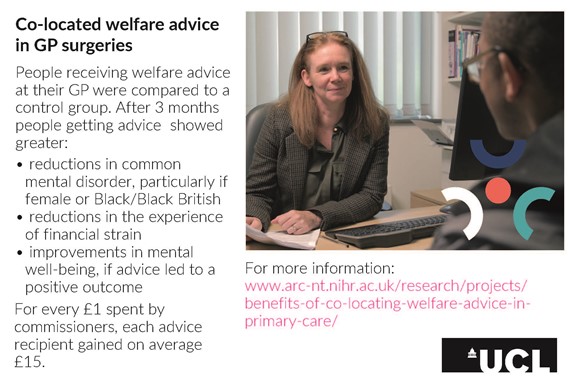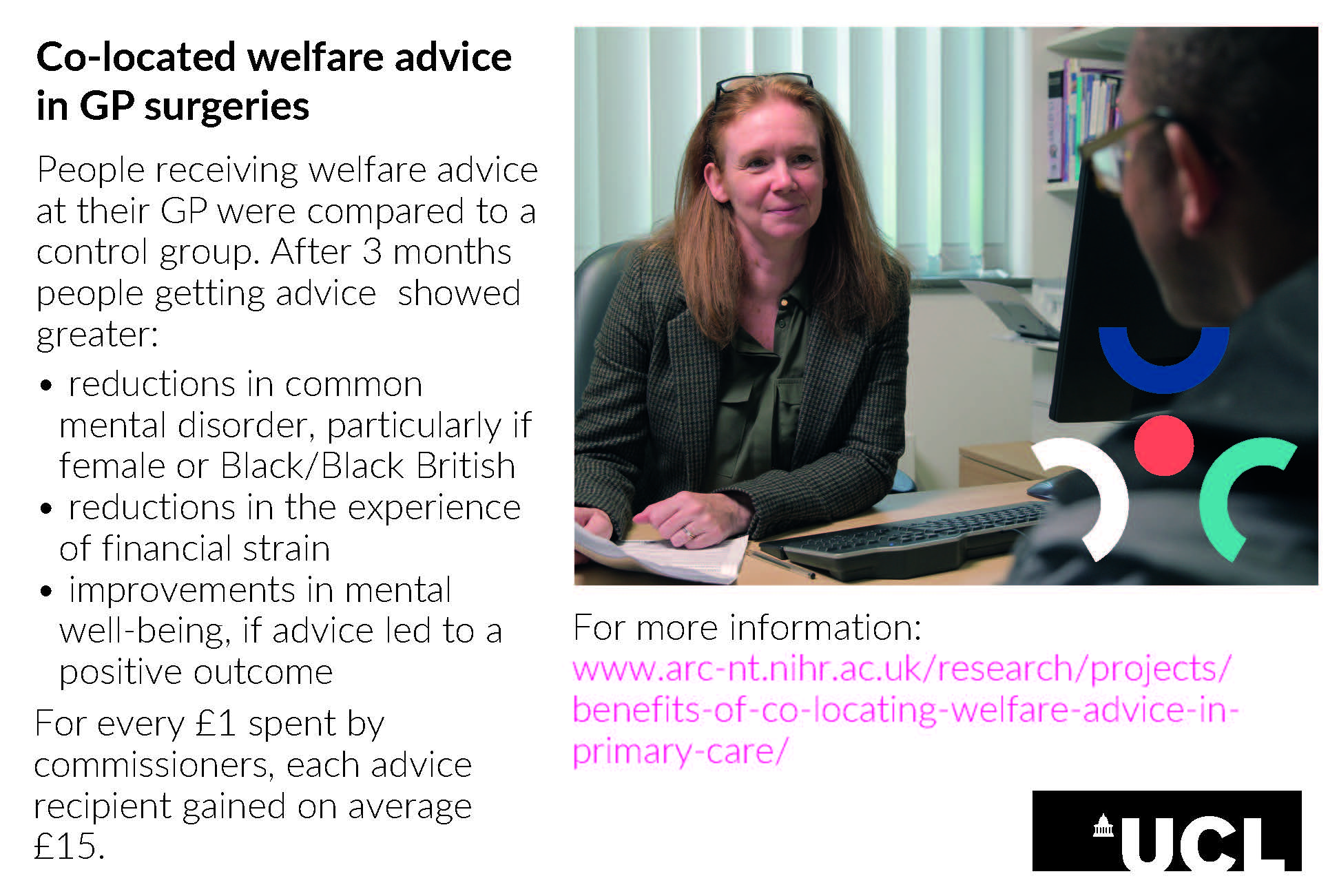People experiencing mental ill health may find it harder to access advice and support for social issues, and worsening economic hardship impacts upon patients’ health and GP time pressures.
Co-locating welfare advice services in primary healthcare settings has been one approach to increasing income among socially deprived groups.
We provided the first evidence-based data on the benefits of co-locating welfare advice services in GP settings, demonstrating significant improvements in patient mental health and well-being, reaching those most in need and supporting healthcare staff. The research found:
- People who received welfare advice gained on average £15 per capita for every £1 spent by commissioners – averaging £2,689 per person.
- Patients had up to 91% greater reductions over time in common mental disorder, improved mental well-being and 58% greater reduction in financial strain.
- Nearly half of advice recipients would not have sought advice or would have turned to their GP had the service not been there.
- Co-located services reduce pressure on GPs and practice staff and increase their capacity to support patients.




